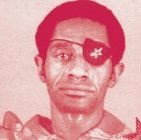Save for New Orleans music aficionados, few are familiar with the music of James Booker — arguably the most prodigiously talented and unquestionably the most misunderstood and overlooked musician to ever call the Crescent City home. Aside from a strung-together Wikipedia page and spare bag of recordings, pictures and concert clips, little is know about the addled, one-eyed maestro. Even to the most ardent enthusiasts and astute historians, the details and depths of the outrageous and obscure pianist’s life remain a mystery. At best, James Booker’s story lies scattered in the bits and pieces of his musical allies’ best kept secrets. Still, Booker’s allure lives on, and while a stranger to most, when heard, the magnificent flourishes, subtle shifts, irrepressible rhythms and unsinkable melodies of his songs rarely fail to leave a lasting impression.
For filmmaker Lily Keber, slow afternoons spent listening to Booker CDs while bartending at Vaughan’s in the Bywater not only served as her introduction to the unheralded pianoman’s tunes but also as the impetus behind her recently completed documentary Bayou Maharajah: The Tragic Genius of James Booker. The film, which features interviews with New Orleans luminaries such as Dr. John, Allen Toussaint, Harry Connick Jr., Cosimo Matassa and many more, also uncovers unseen live footage — both candid and in concert — as well as examines the social climate and psychological struggles which befell the partially blind, bipolar, chemically dependent, closeted sui generis. In this week’s episode of OffBeat’s Look-Ka Py Py Podcast, Keber, fresh off of a highly successful premiere at SXSW earlier this month, sheds some much needed light on the man behind the myth.





